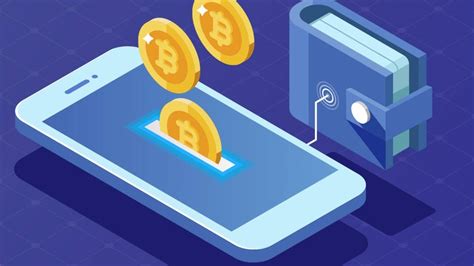As the popularity of cryptocurrencies continues to grow, the security of blockchain wallets has become a top priority for users. With the increasing number of hacking incidents and phishing scams, it's essential to take proactive measures to protect your digital assets. In this article, we'll explore seven ways to improve blockchain wallet security and safeguard your cryptocurrencies.

Understanding Blockchain Wallet Security
Before we dive into the ways to improve blockchain wallet security, it's essential to understand the basics of how blockchain wallets work. A blockchain wallet is a software program that allows users to store, send, and receive cryptocurrencies. These wallets are secured by a unique combination of public and private keys, which are used to authenticate transactions.
1. Use a Reputable Wallet Provider
One of the most critical factors in blockchain wallet security is choosing a reputable wallet provider. With so many wallet options available, it's essential to do your research and select a provider that has a strong track record of security and customer support. Look for providers that offer two-factor authentication, multi-signature wallets, and robust encryption.

2. Enable Two-Factor Authentication
Two-factor authentication (2FA) is an additional layer of security that requires users to provide a second form of verification, in addition to their password. This can be a code sent to their phone or a biometric scan. Enabling 2FA can significantly reduce the risk of hacking and unauthorized access to your wallet.
3. Use a Hardware Wallet
Hardware wallets are physical devices that store your private keys offline, providing an additional layer of security. These wallets are resistant to hacking and malware, making them an excellent option for storing large amounts of cryptocurrencies.

4. Keep Your Software Up-to-Date
Keeping your wallet software up-to-date is crucial for ensuring the security of your cryptocurrencies. Regular updates often include security patches and fixes that can help protect your wallet from known vulnerabilities.
5. Use a Strong Password
Using a strong password is essential for protecting your wallet from unauthorized access. Avoid using easily guessable passwords, such as your name or birthdate, and opt for a combination of letters, numbers, and special characters.

6. Monitor Your Account Activity
Regularly monitoring your account activity can help you detect any suspicious transactions or activity. Set up notifications to alert you of any unusual activity, and keep a close eye on your account balances.
7. Use a Wallet with Multi-Signature Support
Multi-signature wallets require multiple approvals before a transaction can be processed, providing an additional layer of security. These wallets are ideal for businesses or individuals who need to manage large amounts of cryptocurrencies.

Gallery of Blockchain Wallet Security





FAQs
What is blockchain wallet security?
+Blockchain wallet security refers to the measures taken to protect a blockchain wallet from unauthorized access, hacking, and other security threats.
Why is two-factor authentication important for blockchain wallet security?
+Two-factor authentication provides an additional layer of security by requiring users to provide a second form of verification, in addition to their password.
What is a hardware wallet?
+A hardware wallet is a physical device that stores your private keys offline, providing an additional layer of security.
By following these seven ways to improve blockchain wallet security, you can significantly reduce the risk of hacking and unauthorized access to your cryptocurrencies. Remember to always use a reputable wallet provider, enable two-factor authentication, and keep your software up-to-date. With the right security measures in place, you can enjoy the benefits of blockchain technology with confidence.
